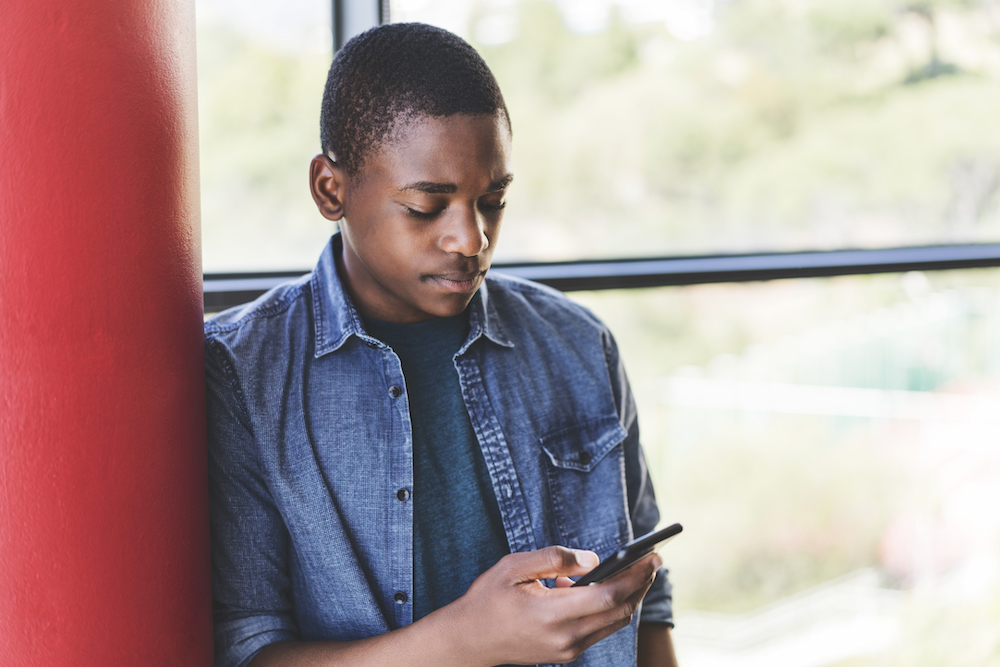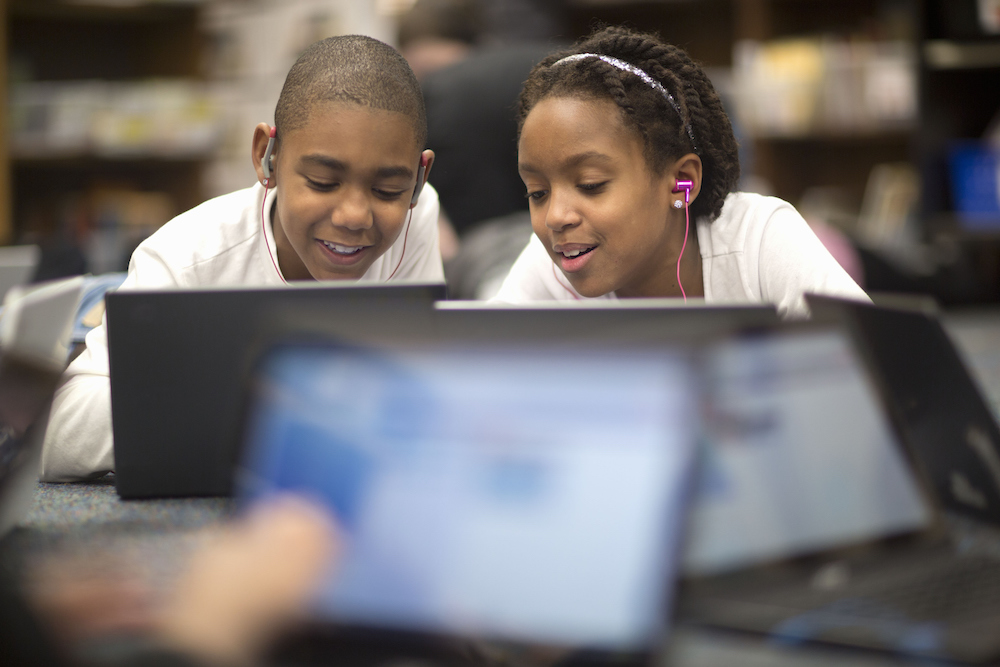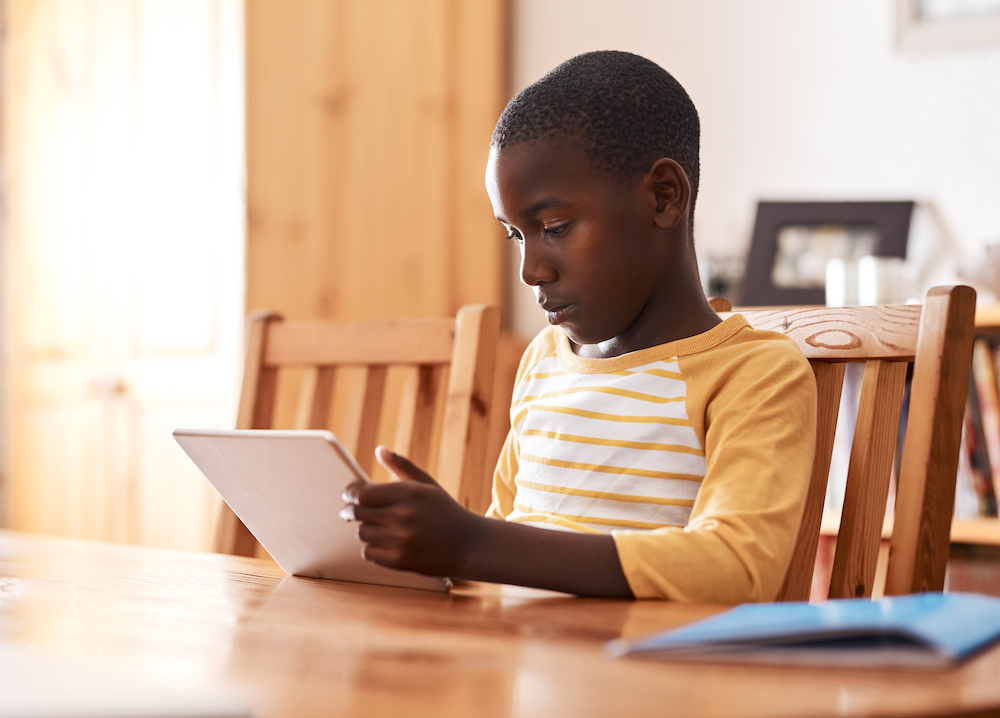Lesson 1: Exploring Experiences
Before you start the lesson, make sure to read through the lesson overview and the lesson preparation. The Facilitator Guide can also help you prepare.
Lesson Overview
Participants will learn to identify specific experiences that have shaped who they are today, reflect on how such experiences might be powerful for their future, and consider ways they can create new experiences that help them achieve their goals.
Lesson Preparation
ESTIMATED TIME
ESSENTIAL QUESTION
- How have your experiences shaped who you are today, and how can you create new meaningful experiences?
MATERIALS
- “Taking on a New Challenge” Handout
- “My Goal Plan” Handout
- Computer with Internet Access
- Projector and Projection Screen
- Flip Chart or Poster (if a board is not available)
- Marker
- Paper
- Pens or Pencils
PREPARATION
- Print one handout per student.
- Students will need internet access for this lesson.
- There are several opportunities to localize content to your students’ experience and local context. These opportunities are flagged as “Teacher’s Notes” throughout. We suggest you read through the lesson ahead of time and prepare the examples before the lesson begins.
OPTIONAL: ISTE DIGCITCOMMIT COMPETENCY
- BALANCED: I make informed decisions about how to prioritize my time and activities online and off.
How Experiences Make us Unique
TELL YOUR STUDENTS
Let’s begin today by thinking about our experiences — more specifically, our past experiences and how they impact the way we interact with the world around us.
Our individual experiences are what make each of us unique. We all have a diverse set of past experiences — some of which particularly stand out to us.
We may call these very important memories “core memories.” They are events that happened in the past that have become central to our identity and personality.
For example, maybe you’re really passionate about playing the piano and one of your core memories is when you first successfully played a really challenging piece. Or perhaps family is really important to you and one of your core memories is of a holiday you all happily celebrated when you were younger.
Sometimes, our core memories are happy. Or, they can be sad, silly, or serious — maybe even a combination of these emotions!
Regardless of the nature of these experiences, they have caused us to see the world in unique ways.
Teacher's Note
The examples above can be localized based on the experiences of your students and their local context. These examples are intended to show students what a core memory is and how it shapes a person's character.
TELL YOUR STUDENTS
Now, I’d like you to choose at least one of your most memorable experiences and discuss it in pairs. Why is it memorable? How has the memory shaped who you are today? Think of the “Islands of Personality” in the video. Has this memory helped to create one (or more) of your islands (i.e., define parts of your personality)? If so, how? You’ll have 10 minutes to discuss with your partner.
CLASS INTERACTION
Organize participants into pairs. Give participants 10 minutes to discuss these questions.
ASK YOUR STUDENTS
- Does anyone want to share one of their most memorable experiences?
- After reflecting on how these experiences have helped define your personality, has anyone learned anything new or surprising about themselves?
Creating New Experiences
TELL YOUR STUDENTS
We all have different memories that give us a unique way of viewing and interacting with the world.
Some of these memories particularly stand out to us — core memories — and help define who we are.
If you’ve already completed Part 1: How Experiences Make Us Unique, feel free to disregard the following examples.
For example, let’s say you really love reading and writing poetry — your love for poetry is part of what makes you, you! Maybe one of your core memories is of a family remember reading poems to you when you were younger. Or maybe you’re passionate about travel and exploring new parts of the world. Perhaps one of your core memories is an amazing trip you took outside of the country when you were younger.
While our past experiences impact our identity, we can always create new memorable, and exciting experiences — experiencing new adventures and making new connections to people and places.
Often, depending on the choices we make, we have the possibility to create new experiences for ourselves.
Some of these choices can seem insignificant. But even making small changes in our day-to-day decisions can have a lasting impact.
Say, for instance, you really want to learn the guitar, but are worried you don’t have the time, given schoolwork and other activities outside of school. During the week, you only have about an hour of free time each day and you spend this time relaxing by watching TV. It is super important to do things that relax us, but what if you took just 15 minutes out of that hour to practice the guitar each day or every other day? Over time, this would help you get better and better and build your confidence in playing the guitar!
Teacher's Note
The examples above can be localized based on the experiences of your students and their local context. The examples above are intended to show how past experiences impact our identity, but new experiences can also shape who we are.
TELL YOUR STUDENTS
Today, you’re going to each choose one medium-sized goal (i.e., a goal that you feel would take you at least several weeks to accomplish) that you’ve always wanted to achieve but have felt was too challenging and think about how you might accomplish this. This can be anything from becoming more mindful to exercising regularly, to learning about an area you’ve always been curious about (such as photography or a certain period from history).
Let’s begin by taking the next 15 minutes to fill out some questions that will help you start thinking of the goal you want to achieve and strategies you can use to reach it.
CLASS INTERACTION
Pass out the “Taking on a New Challenge” handout and pens or pencils. Give participants 15 minutes to complete the handout.
TELL YOUR STUDENTS
Let’s come back together.
First, when you approach new problems, it’s really important that you think about what is motivating you.
Our purpose helps drive us forward when we hit roadblocks as we work toward our goals.
It’s also helpful to consider your past experiences. More specifically, challenging goals you’ve accomplished in the past and how you achieved those goals. Were there certain strategies you used — maybe based on past experiences — that were really successful?
Suppose, for instance, that you have a goal to exercise more frequently. Maybe one strategy you used in the past is exercising at a certain time of day that works really well for you — like first thing in the morning. Or, based on past experiences, you know that you enjoy things the most when you do them with a friend. If your goal is to exercise more often, maybe one strategy could be to exercise together with a friend.
Teacher's Note
The examples above can be localized based on the experiences of your students and their local context.
ASK YOUR STUDENTS
- Does anyone want to share a time when they faced a challenging goal in the past and how they achieved it? Did your past experiences shape how you approached the challenge?
- Write down some of the participants’ responses on a flipchart/poster or board. Some ideas might serve as an inspiration for others.
TELL YOUR STUDENTS
Great! Thanks for sharing these!
When you think of trying something new, sometimes you can feel held back by fear — fear of not doing or saying the right things or letting others down and of ultimately not succeeding.
But, there are ways to overcome this fear. For example, being able to see a situation in a clearer way can help you adjust how you view the scenario so that certain ways of thinking (such as, “I’m too inexperienced to do X!”) don’t get in the way of achieving your goals.
There are a few ways you can develop a clearer way to think about new challenges.
One way you can do this is by thinking about what someone else would tell you if you told him or her what you wanted to achieve. If you told, let’s say, one of your friends about a new challenge you want to take on, what do you think he or she would say? How would he or she provide support?
Another way is by directly asking a friend — or someone else you trust, like a family member, educator, or mentor — for advice.
ASK YOUR STUDENTS
- Have you tried anything in the past that helped you view a goal or problem from a different perspective that ultimately helped you see the solution to the challenge in a clearer way?
Assignment
TELL YOUR STUDENTS
Now, let’s come back to the challenge you’d like to accomplish that you wrote down on your “Taking on a New Challenge” handout.
When you begin something new that seems difficult, it can be really helpful to think of three key things that we discussed today:
- First, our purpose(s) and things that motivate us.
- Second, ways we have successfully approached difficult experiences in the past and what we have learned from these past experiences.
- And third, ways we can gain a new perspective around a challenge.
Write these down on a flipchart/poster or board.
Let’s take what we’ve learned and apply them by mapping out actual first steps you can take to accomplish your goal!
I’m going to hand out a four-week planner where I want you to write, for each week, at least two things you can do to work toward the goal you want to achieve. These don’t have to be huge things — they could take up to just 10 to 15 minutes per week! Think about how, if at all, your past experiences have shaped the steps you plan to take and write this down in the third column of your handout. You’ll have the next 10 minutes to do this.
CLASS INTERACTION
Pass out the “My Goal Plan” handout. Give participants 10 minutes to work on the handout.
ASK YOUR STUDENTS
- Does anyone want to share some steps they’re going to take to try and achieve their goal?
- Have past experiences shaped the steps you intend to take? If so, how?
TELL YOUR STUDENTS
Thanks for sharing these great ways you’re going to work toward your goal!
Today, we learned that while your past experiences have helped shape who you are today, you are always able to create new, challenging and exciting experiences, even by taking small steps.
Looking ahead, I’d love for you to work toward your goal using the steps you’ve written down. Feel free to update your friends and family on your progress!
Congrats!
You've finished the lesson
Source:
This content is hosted by Meta and currently includes learning resources drawn from Youth and Media at the Berkman Klein Center for Internet & Society at Harvard University under a Creative Commons Attribution-ShareAlike 4.0 International license. You can make use of them, including copying and preparing derivative works, whether commercial or non-commercial, so long as you attribute Youth and Media as the original source and follow the other terms of the license, sharing any further works under the same terms.



 Back to Overview
Back to Overview 




